55-250mm IS Lens Test (Massive thread - slow load times)
I went out and tried the new 55-250 IS lens that I have just recently purchased.
I have never done a lens test before, and I assume if anyone has done, then this is were the images from it are appended (apologies mods if I am wrong). All the photgraphs were taken in RAW mode using Aperture Priority and auto-focus with no filters on the Canon EOS 400D.
All images are hand held and contain some exif info in each one (bar the first 2).
My interest in mainly in the longer end and how it looks, so most of them are at 250mm.
************************
I did a couple of shots of a lens test card that came with a magazine. I don't fully understand the consequence of this card, but I did it anyway. However, the text proved to be very well recorded and the sharpness was really good at both lengths.
The first was at the 50mm end.
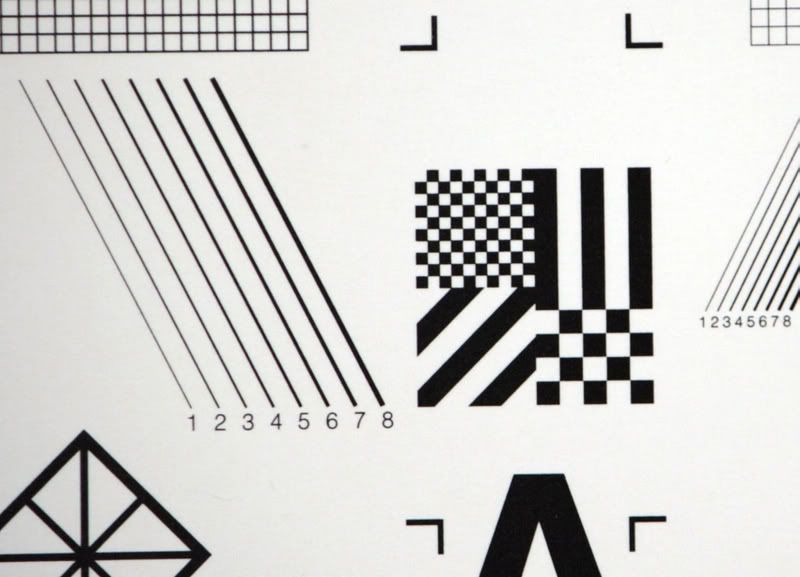
Then at 250mm.
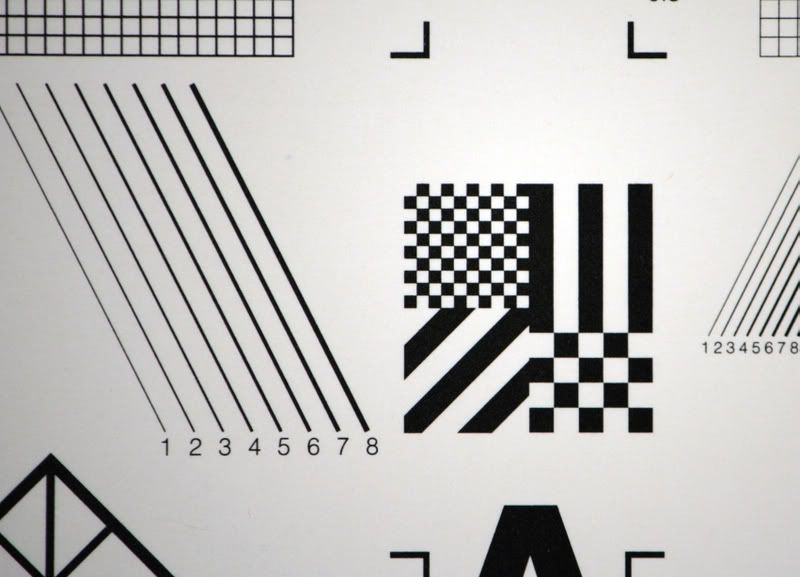
Both under light from a desklamp.
Following up from these two, I photographed a paint can half way down the living room (we're decorating the kitchen) but took them at ISO 1600 to get a shutter speed allowing me to hand hold. This gave me the opportunity to see what the noise was like on the camera with this lens attached.
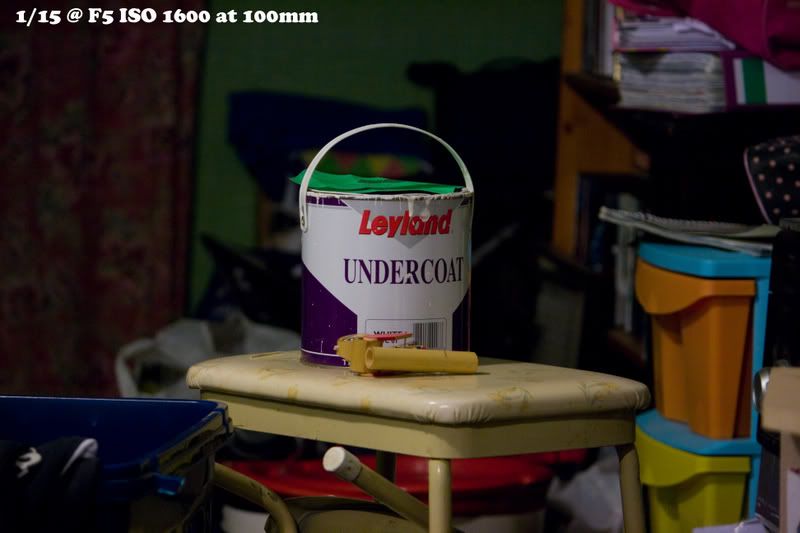
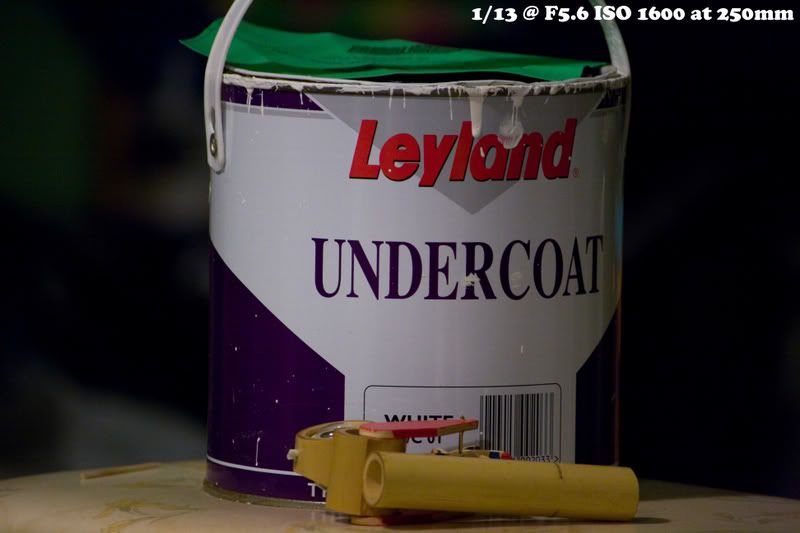
Then Saturday came around and I had the chance to go and use the lens outside.
To be honest, when I got the pictures back for viewing on the PC some seemed a touch over-exposed, but as I shoot i RAW this wasn't a problem. However, when the frame was filled with a subject or very strong colours, exposure improved. I had deliberatley not used the histogram when out and about so that it didn't bias my view.
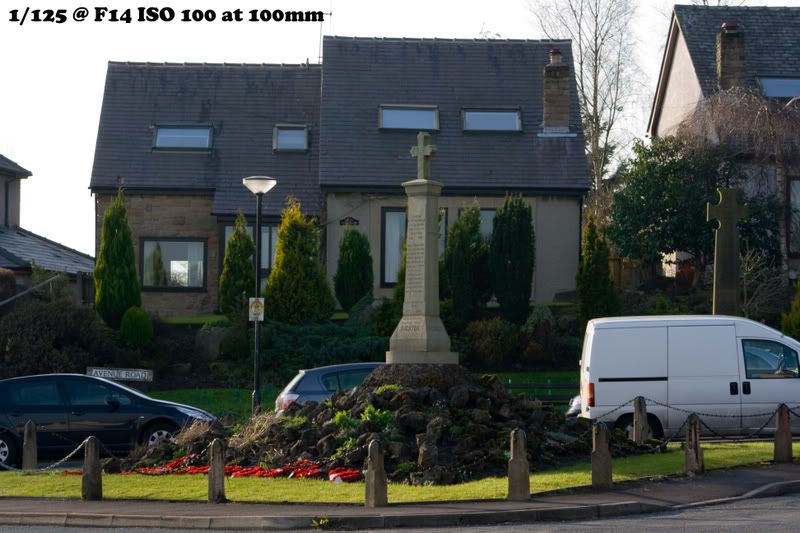
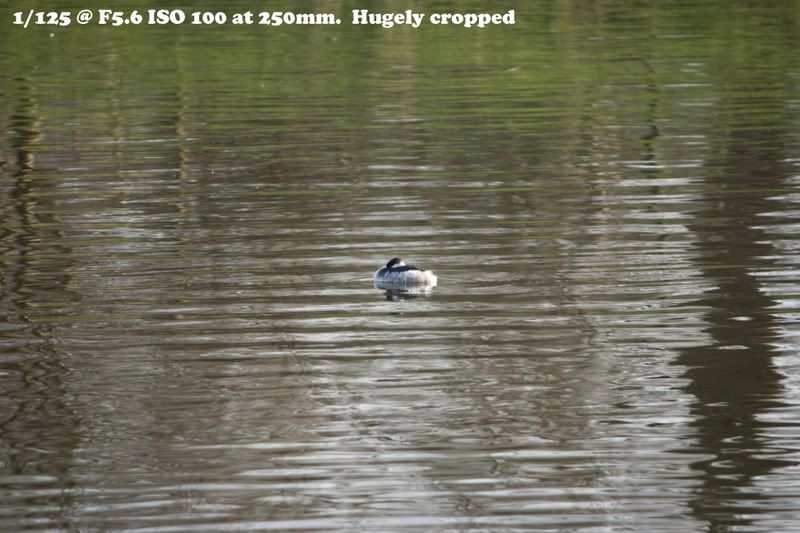
The image above is of an unusual waterfowl visitor to Lancashire, a Slovakian Grebe. Unfortunately, the little bugger never came in close and was for the most part out of reach of the lens.
I did crop in more on one shot of the duck I got:
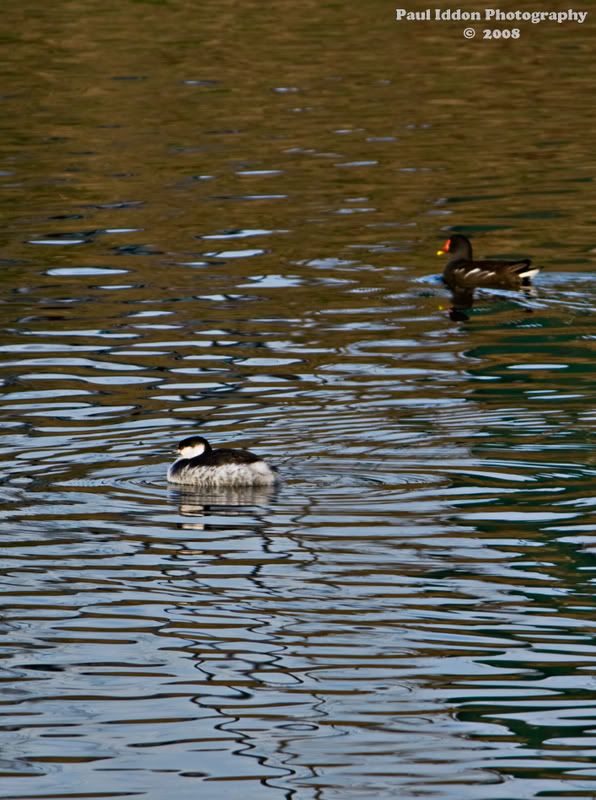
On the water were common wildfowl and when the frame was filled more with subject, it really did quite well for a low cost lens.
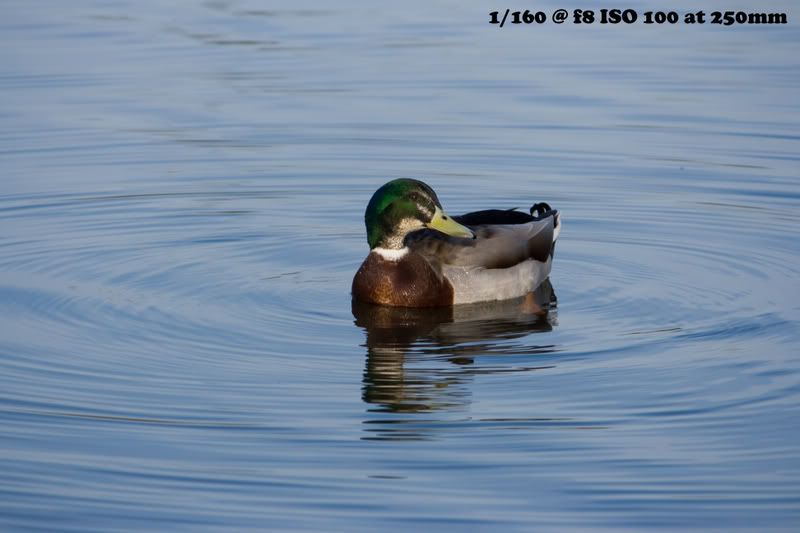
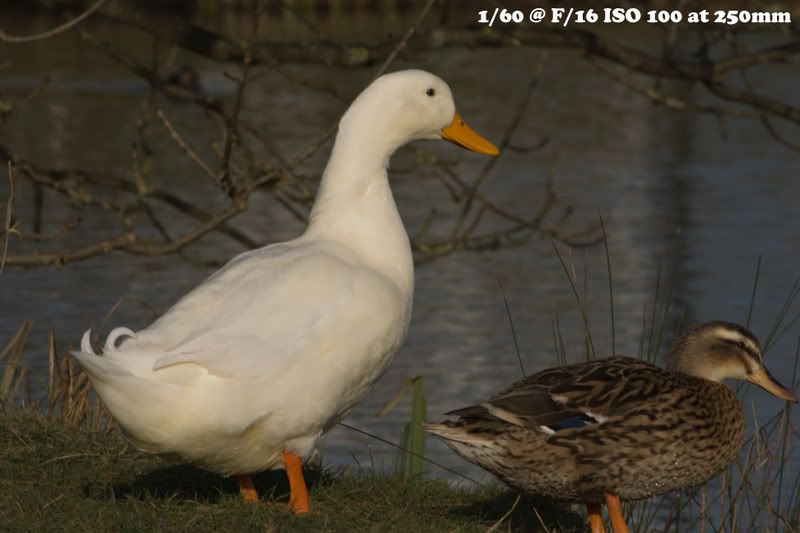
It dealt with prime colours quite well, saturating the red easily.
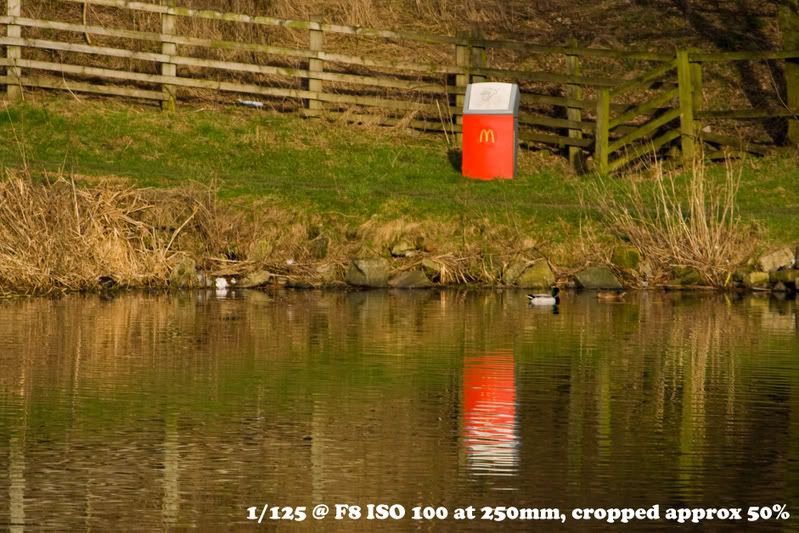
Plants looked reasonably good too - this is a peony tree sprouting early leaf buds.
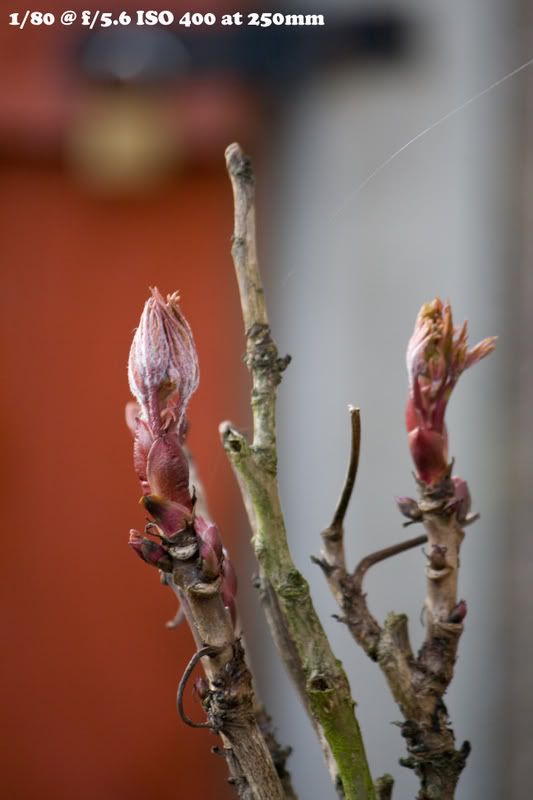
Greens showed up fine, though I did add a little boost in the saturation layer to make them look a little better. Here spring lambs were the main subject, showing the contrast between their coats and the grassy surroundings nicely.
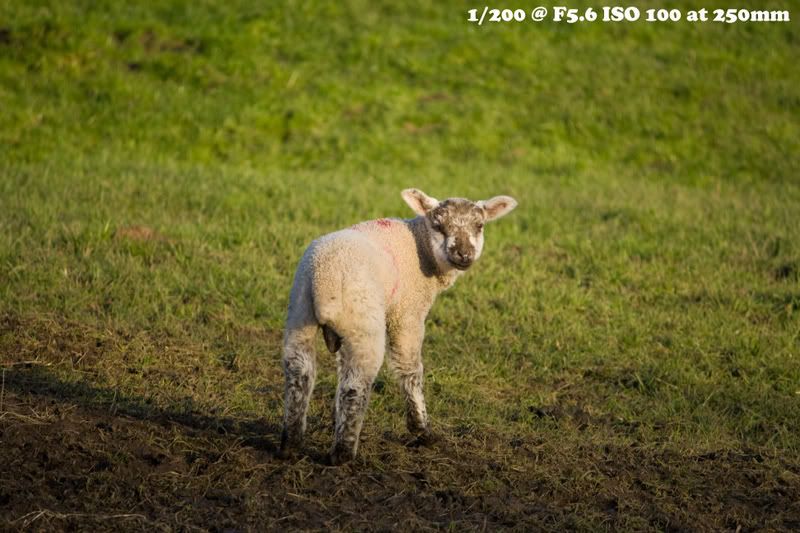
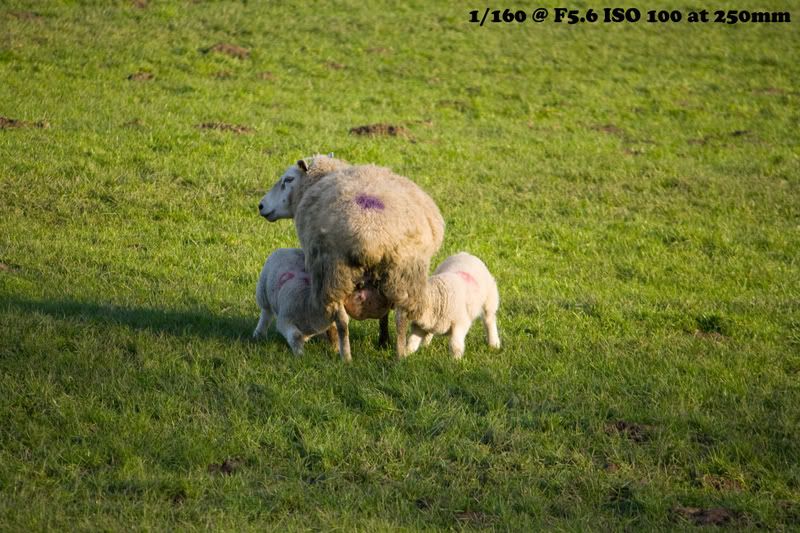
A closer view of a windmill ornament in a garden made a good display of the yellows that the lens handled well.
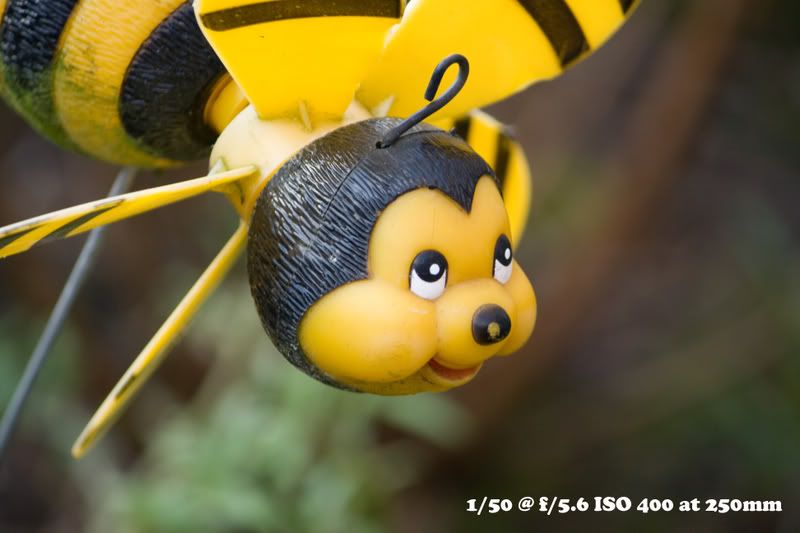
Some brave idiot managed to catch my attention in the sky in a micro-lite or something. The blue sky was vibrantly recorded with no use of a polarisor. The pilot was some distance from me however, and the focussing proved not to be as accurate or as fast (as I had already gathered from information I had read elsewhere) as I had hoped.
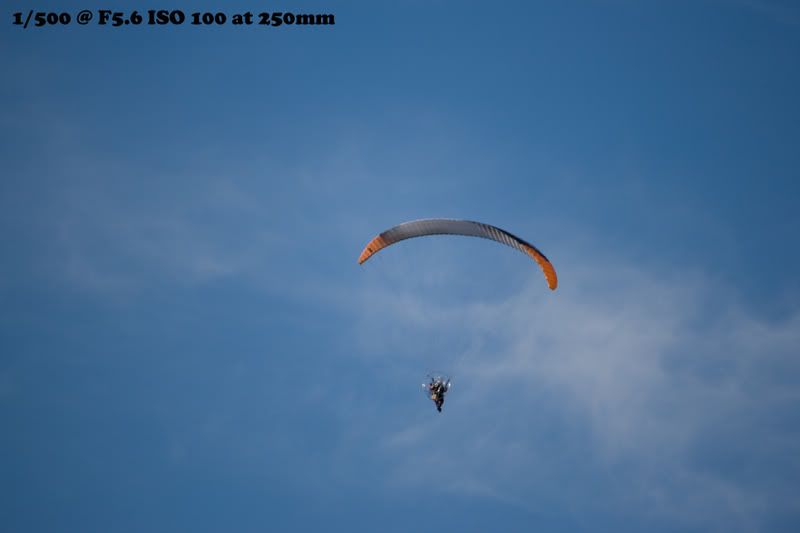
I was impressed however with the sharpness of large substantial objects - namely buidings. The edges looked good to me and the colours were recorded well too. Detail was impressive and saturation was spot on.
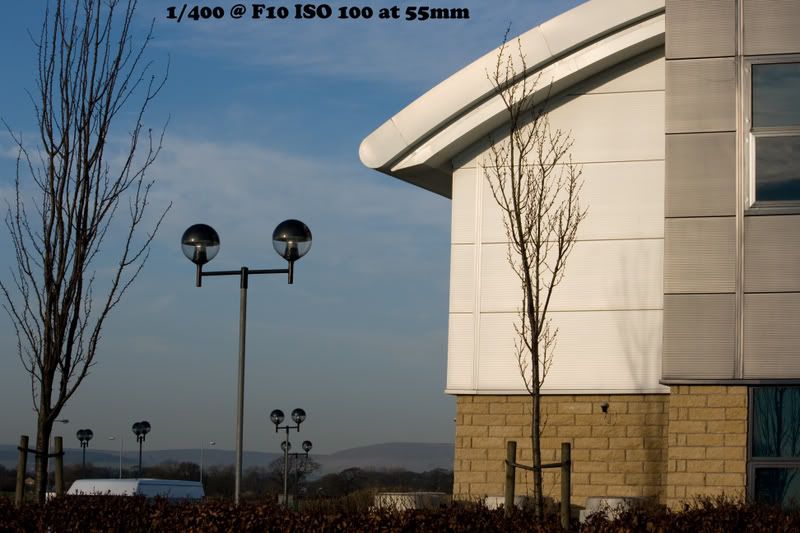
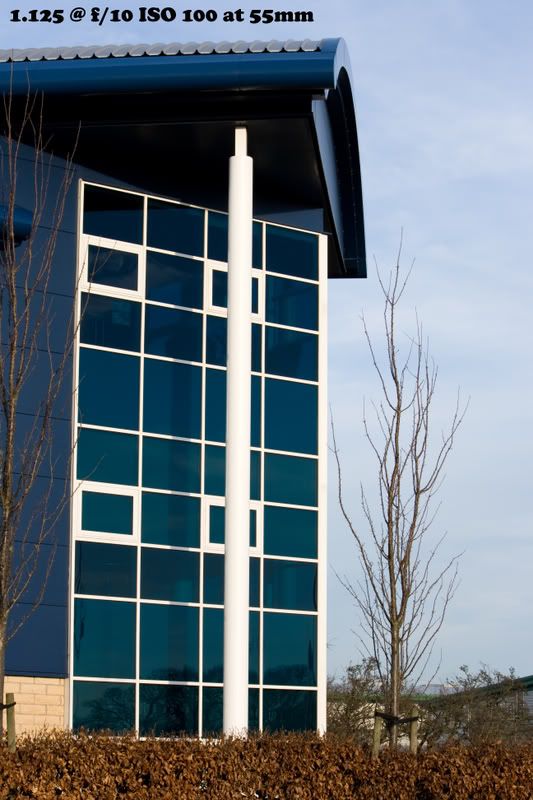
I think overall, I am quite impressed with my initial attempts with the lens. The IS kicked in smoothly and quietly, and in most cases, the focussing was swift and accurate except when I was in AI Servo tracking the chappie in the air.
At top magnification, the images still look very good to my eye, unless it was of small subjects at distance.
For the price, this is a decent purchase for those like me on a limited budget. You will accept that it falls short of the quality of Canon's better pricier lenses, and falls a long way short of L series glass, though that is a given, considered the difference in price, build and optics.
Aimed at amateur users, this is worth having in your kit bag.
Just my opinion, of course. I hope someone finds this useful.
Paul.
0
Comments
― Edward Weston